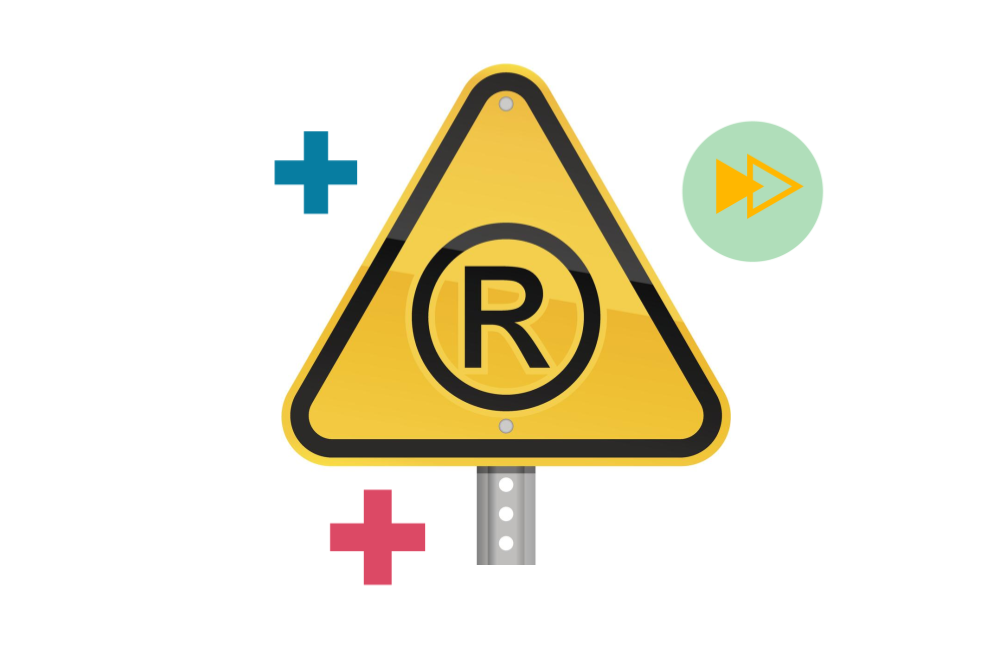
Author Matt Sammon
Intellectual Property protection is important for any business, regardless of size, when IP is protected and managed effectively it can become a valuable commercial asset. Brands are often surprised at how many aspects of their intellectual property they can protect and how they can utilise each right in their IP portfolio. In this article our Chartered Trade Mark Attorneys answer key questions surrounding intellectual property protection, explaining its importance for brands alongside useful tips to help you get started.
What are Intellectual Property Rights?
Intellectual Property is defined as:
“Intangible property that is the result of creativity.”
Whilst some businesses are more creative than others, there is creativity in all businesses. This includes the way you work, the way you present yourself to customers, the products you design, the services you offer and the way you offer them. When assessing your brand’s key intellectual property rights, you should be asking yourself the following questions:
- Why would customers choose my business or product?
- What are my unique selling points?
- How do we differentiate ourselves from our competitors?
- What changes have we made to improve our business?
Making a business successful is hard work. Intellectual Property rights are one of the ways to protect and reap the benefits from that hard work for the long-term.
What are the benefits of Intellectual Property protection?
- Security – First and foremost, clearing your Intellectual Property for use and securing protection can ensure your ability to trade and grow your business without fear or repercussions of infringing anyone else’s rights.
- Competitive advantage – There are few, if any, markets that aren’t filled with competing businesses. Your Intellectual Property is often what sets your business apart from the competition and creates a competitive edge that can propel your business forward.
- Customer loyalty – Creating a brand and/or product that customers grow to love and trust will ensure that customers keep coming back for more.
- Income generation – Being able to control and licence your Intellectual Property opens up different revenue streams and ways of operating, whilst enabling you to maintain control of and build your reputation.
- Raising capital – Like any other property, Intellectual Property can be used as security to raise funds to fuel growth in your business.
What types of Intellectual Property can be protected?
Intellectual property rights which can be protected by law are primarily categorised into:
Trade Marks – property that identifies the origin of your products or services such as business name, product names, logos.
Copyright – property that protects the physical manifestation of your creative work, such as literary and artistic works, your website content, marketing materials and software code.
Registered Designs – property that protects the look and feel of your products.
Patents – property that protects your inventions.
Which types of Intellectual Property are automatically protected?
Certain aspects of intellectual property are protected without the need to formally register for protection, this is often the case when it’s come to copyright and design right.
Copyright protection arises automatically upon creation of the work. However, it is important to ensure that you are the owner of any copyright work created for your business and that you can document the creation and ownership. Copyright is owned by the creator of that work, unless created by an employee in the course of their employment. For example, if you contract out the creation of copyright works, such as website design, you will not own the copyright works unless there is an agreement in place, typically called an assignment, to transfer ownership to you and your business.
Design right protection available for the look and feel of a product and can be protected through unregistered design right and registered design right. Unregistered design right protection lasts for 15 years from when a design was created, or 10 years from when a design is first marketed, whichever is the shorter. Again, as with copyright, design right is owned by the creator of the work, unless created by an employee in the course of their employment, so as with copyright being able to document creation and ownership is key.
Protection for trade marks, registered designs and patents involves a formal registration process and it is recommended to consult an Intellectual Property specialist who can provide accurate guidance on the right protection for your brand.
When should you protect your Intellectual Property?
The safe answer is as soon as possible, however, as there are costs involved with protection you need to adopt a sound commercial strategy for Intellectual Property protection. Deciding what and when to protect should be based on maximising the benefit of protection, minimising the risk of using the IP and creating the best cost/benefit approach.
Ideally, you do not want to be investing significant sums in developing and protecting a project that ultimately you cannot protect and may expose you to infringement of third-party rights. The questions to ask yourself are:
- Can we use/launch this brand, product or service without infringing third party rights?
- If yes, what can we protect?
- Of the protection options, which gives us the most value?
At this point you can then take a decision on what to protect, and more importantly whether to proceed with the project at all.
Who is responsible for Intellectual Property protection?
This important question is often overlooked in SMEs. Appointing someone to have overall responsibility for the IP of a business will help to ensure that strategies can be adopted and followed that ensure you do not miss out on securing valuable protection.
The vast majority of businesses do not have an in-house legal department, but this need not be a problem. The Appointee can liaise with your IP advisors and ensure that all the necessary checks are made to ensure you don’t infringe third party rights and that you take advantage of the protection available. Ultimately you want to develop a robust process for assessing and protecting your IP, involving the staff, decision makers and external advisors. Whilst this may sound complex, that is not always the case, setting up clearly defined responsibilities and channels of communication can make the process simple, and it will soon become second nature.
A good IP specialist will not only secure protection on behalf of the business but will also be able to assist you in developing an IP strategy and internal processes. They can help guide you in what you can protect yourself and where you need external help.
We create real IP value
From the everyday to the IP emergency, our accomplished Chartered Trade Mark Attorneys and IP Solicitors are driven to get the very best outcome for every brief for every client, every time! Sonder & Clay are a full service IP law firm with proven expertise and results in IP protection, strategy, disputes, and exploitation. Learn more about our IP services or get in touch with us for a complimentary IP audit today.



